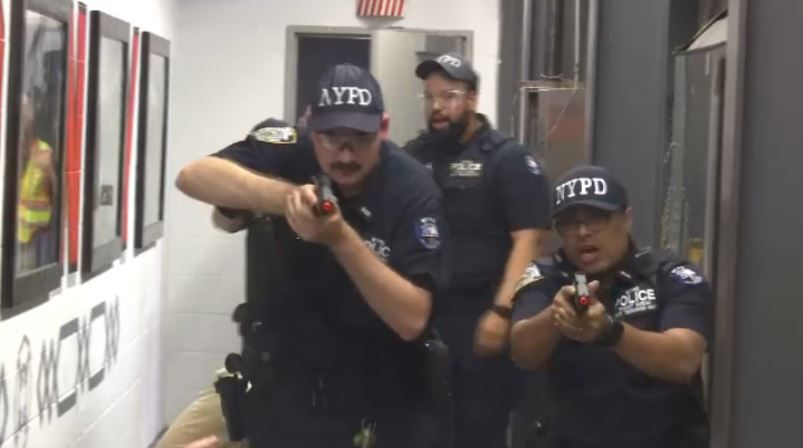A bill to cut the state’s required number of school lockdown drills in half has never reached a vote in the Assembly, and the head of the chamber’s Education Committee said that’s unlikely to change anytime soon.
Over the last few years, some parents have pushed for a measure to reduce New York’s mandate for schools to hold at least four lockdown drills each academic year down to two — separate from eight required fire drills for 12 total.
The measure has cleared the state Senate three years in a row, but Assembly Education Committee Chair Michael Benedetto said it’s not the Legislature’s place to reform the policy.
“You know, too much guidance from the state, sometimes, has a negative effect,” Benedetto told Spectrum News 1.
Benedetto, a Bronx Democrat, said it’s up to the state Education Department and New York City Department of Education to set rules for districts, including the proper way to hold drills or to change the required number.
“I’m kind of standoffish on doing and imposing regulations on [school districts], this being one of them,” he said.
But parents like Robert Murtfeld aren’t letting up.
He’s led the group of parents — who are laregely based in New York City — pushing for the bill. They argue four drills per year traumatizes children, takes significant time away from learning and isn’t based on science.
“We want one drill done well instead of four drills done poorly — and that’s what’s on Mr. Benedetto’s table,” said Murtfeld, a Brooklyn public school father of two.
Assembly sponsor Jo Ann Simon said Benedetto’s comments don’t mean the fight is over, adding it’s customary for the lower house to give state agencies more leeway.
Simon said she hasn’t had the votes to pass the measure in the Assembly since it was first introduced in 2022.
“While on the whole, people don’t like mandates, this seems to be one they have relied on and feel it provides safety,” Simon said. “We don’t really have any evidence that it does. We do have evidence that it’s causing mental health issues. But if we can reduce it from four to two developmentally and age-appropriate, trauma-informed drills, the effect of those two that remain will be less dramatically negative.”
The assemblywoman said she’ll discuss the measure with Benedetto and will prioritize its passage next year.
The push for the bill led the state Education Department to impose lockdown drill guidance for schools last year, but the required four drills didn’t change.
“Our bill would actually give the power back to the districts,” said Senate sponsor Andrew Gounardes, a Democrat from Queens. “It’d give the districts the power to say, do at least two, but you can do four, you can do six; you can do one a week if you so choose.”
The department worked with the state Parent Teacher Association, the state School Boards Association, state police and the state Division of Homeland Security and Emergency Services to update the regulations for emergency response and school safety plans, including rules to ensure lockdown drills are trauma-informed and age-appropriate.
“Our recent regulations update was a product of conversations with them,” according to the department. “NYSED also works with the New York State Center for School Safety for technical assistance in providing support to schools, students, families and communities.”
Murtfeld said he expects it will remain a top issue for parents, and won’t be something Benedetto can avoid.
“The new mayor of New York City will have to deal with this issue,” Murtfeld said. “And if the New York City [Department of Education] has people who are advocating internally to support it…then Mr. Benedetto has to respond in Albany because his own constituents want it, too.”
The issue is bipartisan — with many Republican and Democratic lawmakers in agreement that New York students would be better served with fewer drills per year. In the weeks following the mass shooting in Parkland, Florida, in 2018, President Donald Trump called active shooter drills “a very negative thing” and said they’re bad for children.
The bill originally had a provision that allowed parents or legal guardians to opt students out of drill participation. That was removed from the legislation, but is expected to be a separate legislative battle in the future.
